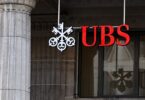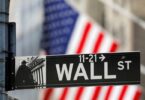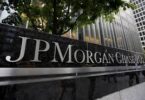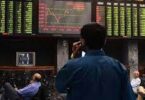F.P. Report
KARACHI: After a considerable declining trend in the previous weeks, reports of positive outcome from the FATF meetings in Paris for Pakistan restored some of investors’ confidence in the stock market in the early trading hours on Wednesday.
The benchmark KSE 100-Share Index reached 40,505.27 points after gaining 329.92 points or 0.82pc as of 11.19am. The Index opened at 40,221.82 today. Yesterday, the market closed at 40,175.35 after losing 101 points than the previous day (Monday). The apex of the day so far remained 40,586.65 while the low was 40,175.35.
The rally came following confirmed reports from sources that Pakistan will not be put in the black list, but will remain in the grey list till October 2020 i.e. the country is given more time to implement effectively the global illicit financing watchdog’s 27 recommendations about the anti-money laundering and combating financing of terrorism (AML/CFT) mechanism.
In previous weeks, the market kept struggling for its sustainability when confusion and uncertainty surrounded investors until late Friday when the IMF, in its concluding remarks affirmed that Pakistan had been successful in completing the “structural benchmarks” as well as in meeting “all end-December performance criteria” which had been set for the implementation of $6 billion Extended Fund Facility programme.
Previously, other persisting factors in the decline of stock market were the FATF concerns and large suspension of imports from China, which had been hammering the stock market, following the outbreak of COVID-19. Besides, strife political disagreements between coalition parties in the government until some of them were settled in meetings with the ruling PTI.
Since mid-January, investors have been adopting extremely cautious behaviour after more headlines cover mounting deaths due to coronavirus taking full hold, a plunge in global crude oil prices, unchanged main policy rate by the State Bank of Pakistan at 13.25 percent for the next two months and political uncertainty in the country.
The SBP in the latest monetary policy statement kept the interest rate unaltered and pushed selling in the leveraged sectors such as cement and steel. Concerns over higher than expected reading of inflationary pressures and political uncertainty sparked by coalition partners of the government also kept investors away from the market.
Asia stocks rise on lull in virus worry
Asian shares and U.S. stock futures rose on Wednesday, as investors tried to shake off worries about the coronavirus epidemic after a slight decline in the number of new cases.
MSCI’s broadest index of Asia-Pacific shares outside Japan recovered from a shaky start to rise 0.4%.
Chinese shares erased early declines to trade 0.6% higher. Australian shares were up 0.37%, while Japan’s Nikkei stock index rose 0.95%.
Euro Stoxx 50 futures rose 0.65%, German DAX futures gained 0.67%, while FTSE futures were up 0.74%.
The euro languished at a three-year low versus the dollar as disappointing data from Germany, Europe’s largest economy, has stoked fears that the euro zone is more vulnerable to external shocks than previously thought.
The Treasury curve remained inverted on Wednesday as yields on three-month bills traded above yields on 10-year notes in a sign that some investors remain cautious about the outlook.
China, the world’s second-largest economy, is still struggling to get its manufacturing sector back online after imposing severe travel restrictions to contain a virus that emerged in the central province of Hubei late last year.
Many investors view Chinese data on the virus, dubbed SARS-CoV-2, with a great deal of scepticism, but there are hopes that officials will roll out more stimulus to support the economy.
“Part of the thinking that is supporting markets is the actions that China takes to support its economy,” said Michael McCarthy, chief market strategist at CMC Markets in Sydney.
“Any investor concern around impact on demand globally from the virus will be offset by expectations that global central banks will ride to the rescue.”
U.S. stock futures rose 0.3% in Asia on Wednesday. The S&P 500 fell 0.29% on Tuesday after Apple Inc said it would miss sales targets because the virus in China is pressuring its supply chain.
Mainland China had 1,749 new confirmed cases of coronavirus infections on Tuesday, the country’s National Health Commission said on Wednesday, down from 1,886 cases a day earlier and the lowest since Jan. 29.
The death toll in China has topped more than 2,000 from the flu-like illness which has already spread to 24 other countries.
The People’s Bank of China cut the interest rate on its medium-term lending on Monday, which is expected to pave the way for a reduction in the benchmark loan prime rate on Thursday, as policymakers try to ease financial strains caused by the virus.
In the currency market, the euro was quoted at $1.0798, close to its lowest since April 2017.
Sentiment remained weak after a survey on Tuesday showed a sharp deterioration in German investor sentiment due to the coronavirus.
In the onshore market, the yuan briefly fell to a two-week low of 7.0136 per dollar as traders continued to ponder the economic impact of the virus and the chance for more monetary easing.
The yield on three-month Treasury bills stood at 1.5949% in Asia on Wednesday, above the 10-year Treasury yield of 1.5661%.
A yield curve inverts when short-term yields trade above long-term yields and is often considered a sign of recession in the next year or two.
U.S. crude and Brent both rose more than 1% to $52.63 a barrel and $58.39 per barrel, respectively, as a reduction in supply from Libya offset concerns about weaker Chinese demand for commodities.
Expectations that the Organization of the Petroleum Exporting Countries and allied producers including Russia will cut output further should lend support to prices.
The group, known as OPEC+, will meet in Vienna on March 6.






